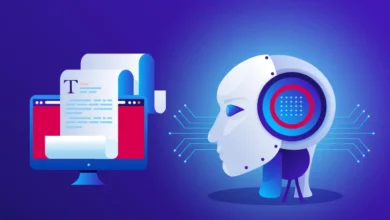The Future of Talent Acquisition: Combining Human Insight with Technology

Key Takeaways:
- Integrating technology with human insight optimizes talent acquisition processes.
- Data-driven recruitment enhances decision-making and efficiency.
- Emerging trends such as AI and machine learning are reshaping recruitment strategies.
Table of Contents:
- The Evolution of Talent Acquisition
- Striking a Balance: Human Insight Meets Technology
- The Rise of Data-Driven Decision Making
- The Impact of AI and Machine Learning
- Challenges and Considerations
- Future Trends in Talent Acquisition
- Conclusion: Embracing the Future
The Evolution of Talent Acquisition
The talent acquisition landscape has undergone a remarkable transformation over recent years, becoming a dynamic and technology-driven process. Traditionally, recruitment relied heavily on manual efforts, with HR teams sifting through piles of resumes and conducting face-to-face interviews to determine the best candidates for a position. This approach, while thorough, was time-consuming and often inefficient, especially in high-demand industries.
Today, companies such as those involved in True’s executive search are leveraging cutting-edge technologies to revolutionize their recruitment processes. With digital tools and platforms advancements, talent acquisition has transitioned into a more strategic and streamlined function. Incorporating technology allows organizations to extend their reach, connect with a broader pool of candidates, and enhance their capability to make well-informed hiring decisions. This shift is not just about improving efficiency; it is about redefining how organizations engage with potential talent in a meaningful and effective way in an increasingly competitive job market.
Striking a Balance: Human Insight Meets Technology
While technology has introduced many innovative tools and advancements to the recruitment process, the human element remains indispensable. The true power of talent acquisition lies in harmonizing technological capabilities with human insight. Algorithms and data analytics can identify patterns and assess skill sets, but they cannot replace the innate human qualities of empathy, intuition, and cultural understanding.
Recruitment strategies that successfully integrate technology with human judgment achieve a balanced approach. Technology manages data-heavy tasks such as sorting applications and scheduling interviews, while HR professionals focus on the nuances of personal connections and cultural fit. This combination ensures that while machines handle efficiencies, human recruiters maintain the relational aspects that are crucial for a successful hire. By preserving the human touch, organizations improve their recruitment outcomes and create a more fulfilling experience for candidates.
The Rise of Data-Driven Decision Making
Data has become a pivotal resource in the modern recruitment landscape, transforming decisions. Data-driven decision-making involves using analytics and metrics to inform and guide the selection process. By collecting and analyzing data, organizations can identify trends, predict future needs, and make evidence-based decisions that improve recruitment outcomes.
Utilizing platforms integrating data from various sources enhances the recruitment process by providing comprehensive insights into candidate qualifications and potential fit. For instance, platforms that offer data-driven recruitment tools enable employers to access vast amounts of information, streamlining the process of matching candidates with roles. This approach increases efficiency and helps minimize unconscious biases and gut feelings that can cloud judgment. Data-driven recruitment represents a significant evolution in hiring practices, offering objective, actionable insights that lead to more strategic and successful hires.
The Impact of AI and Machine Learning
Artificial intelligence and machine learning are reshaping the recruitment landscape, providing tools to perform sophisticated tasks with unprecedented speed and accuracy. AI automates mundane and repetitive recruitment tasks, such as screening resumes, scheduling interviews, and sending follow-up communications. This automation frees up valuable time for HR professionals to focus on strategic initiatives and the candidate experience.
Furthermore, AI enhances recruitment by offering deeper insights into candidate suitability. Through AI-powered analytics, organizations can assess candidate profiles, predict job performance, and personalize candidate experiences. As AI technologies advance, their ability to learn from data and improve over time will become essential to effective recruitment strategies.
Challenges and Considerations
Despite the numerous advantages offered by technology in recruitment, integrating these tools presents its own set of challenges. One primary concern is maintaining candidate privacy while utilizing technologies that collect and analyze personal data. Companies must prioritize data security and establish protocols to protect candidate information.
Additionally, preserving a personal touch in candidate interactions as automation increases poses a challenge. While technology can enhance efficiency, it can also lead to a depersonalized experience if not managed carefully. Balancing automation with genuine human interaction requires thoughtful implementation and continuous assessment.
Moreover, the potential for AI-driven tools to perpetuate biases embedded in data presents another significant consideration. Organizations must regularly review and audit their systems to ensure fairness and mitigate any implicit biases. Transparent and ethical practices are critical to maintaining trust with candidates and upholding equitable recruitment standards.
Read Also: Tech Innovations and Business Growth 3357694990
Future Trends in Talent Acquisition
Looking ahead, the future of talent acquisition promises even more advanced and innovative approaches. Emerging trends indicate a growing role for AI in enhancing recruitment strategies. New technologies, from predictive analytics to augmented reality job previews, are set to personalize further and optimize the candidate experience.
Furthermore, machine learning is expected to be pivotal in building dynamic talent pools, allowing recruiters to engage with potential candidates proactively even before positions become available. Platforms like LinkedIn are increasingly leveraging AI to target and engage with passive candidates, demonstrating the direction of future recruitment strategies.
Adapting to these technologies will be critical as organizations strive to stay ahead in a competitive landscape. By anticipating and embracing these trends, companies can refine their talent acquisition practices to meet evolving market demands and attract top talent aligned with immediate and future business goals.
Conclusion: Embracing the Future
Integrating technology with human insight represents a transformative step forward in talent acquisition. As the landscape evolves, leveraging flexible and innovative approaches is crucial for staying at the forefront of talent acquisition. By thoughtfully incorporating technology while maintaining the essential human elements of empathy and understanding, businesses can build strong, adaptable teams that are prepared to tackle the challenges and opportunities that lie ahead.





